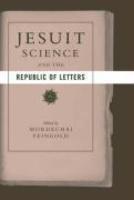
Book Summary
Founded in 1540, the Society of Jesus was viewed for centuries as animpediment to the development of modern science. The Jesuit educational system wasdeemed conservative and antithetical to creative thought, while the Order and itsmembers were blamed by Galileo, Descartes, and their disciples for virtually everyproceeding against the new science. No wonder a consensus emerged that little reasonexisted for historians to take Jesuit science seriously.Only during the past twodecades have scholars begun to question this received view of the Jesuit role in theScientific Revolution, and this book contributes significantly to that reassessment.Focusing on the institutional setting of Jesuit science, the contributors take a newand broader look at the overall intellectual environment of the Collegio Romano andother Jesuit colleges to see how Jesuit scholars taught and worked, to examine thecontext of the Jesuit response to the new philosophies, and to chart the Jesuits'scientific contributions. Their conclusions indicate that Jesuit practitioners wereindeed instrumental in elevating the status of mathematics and in stressing theimportance of experimental science; yet, at the same time, the Jesuits were membersof a religious order with a clearly defined apostolic mission. Understanding boththe contributions of Jesuit practitioners and the constraints under which theyworked helps us to gain a clearer and more complete perspective on the emergence ofthe scientific worldview.
Book Details
| Book Name | Jesuit Science And The Republic Of Letters |
| Author | Mordechai Feingold |
| Publisher | Mit Press (ma) (Sep 2002) |
| ISBN | 9780262062343 |
| Pages | 495 |
| Language | English |
| Price | 3547 |
